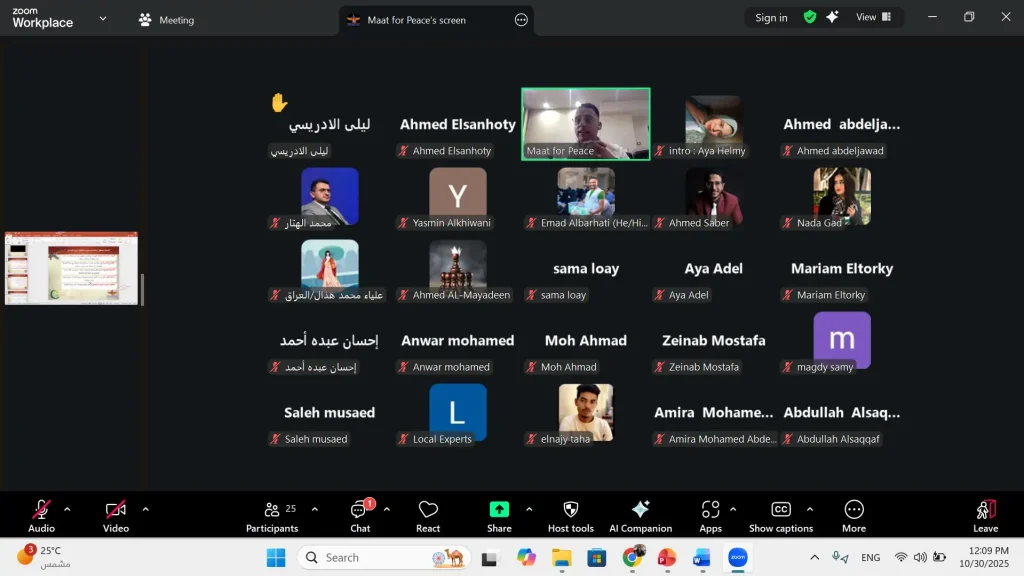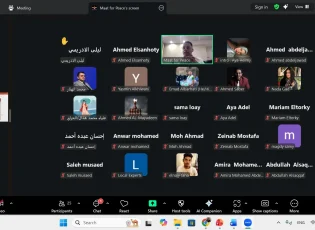Maat finishes discussing its proposals for the executive regulations for NGOs
Al-Burai: Criminal penalties and registration are the most important legal problems that must be explained by the regulations
Abdul Qawi: The Bylaw Drafting Committee is keen to establish controls to mitigate the severity of the articles of the law
Aqeel: We seek to provide recommendations that are consistent with Egypt's international commitments to decision-makers
On the occasion of the decision issued by the Council of Ministers to form a committee to draft executive regulations for the Associations and Non-Governmental Institutions Law No. 70/2017, and in the wake of the efforts made by the Foundation in the societal debate on the draft law, and the campaign it led to stop the ratification of the law, Maat Foundation for Peace, Development and Human Rights held a hearing On the executive regulations of the “Civil Associations Law No. 70/2017”, on Monday, August 28, 2017.
The hearing was hosted by Dr. Ahmed Al-Burai, the former Minister of Social Solidarity, Dr. Talaat Abdel-Qawi, President of the General Union of Non-Governmental Associations and Institutions, in addition to a group of leaders of civil work organizations, media professionals, academics, representatives of specialized national councils, the Ministry of Social Solidarity, political parties, and the regional federation of civil societies and institutions in Cairo, Giza and Qalyubia.
The issues discussed in the session varied between the necessity to set interpretations and controls for the articles of the law, especially those related to penalties, the practice of political activity, proof of the association or institution’s refusal to submit to the inspection of the administrative body, and the suitability of the headquarters to organize activities.
Al-Ma'idah also recommended qualifying the administrative body’s employees to implement the law, amending the registration fee to be by ministerial decision, reviewing all requests submitted to the agency responsible for managing the work of NGOs until the 24th prior to the date of the meeting, making the state’s development plan available to NGOs and civil institutions, and reconciling the status of associations and institutions Eligibility: From the date of approval of the list and not from the date of approval of the law, for the General Federation of Associations and Institutions to provide written consultations to the competent courts of dismissal and dissolution of associations, to determine the employees of the administrative authority who have the right to judicial control, and to take into account the time frame for implementing projects when responding to requests for grants.
Finally, the participants suggested amending some articles of the law that impose criminal penalties for administrative offenses and that restrict the freedom of workers to volunteer work due to their violation of Egypt's international obligations, in addition to explaining the agency's failure to respond to requests for grants or opinion polls by accepting instead of refusing.
With this, Maat has concluded the sixth hearing session for the “Universal Periodic Review as a tool for improving public policies during the transitional period” project, which aimed to present a set of solutions and alternatives at the level of policies and legislation compatible with the recommendations of the Universal Periodic Review 2014, as part of the activities of the project funded by the European Union. Over the course of 2016-2017.
shortlink: https://maatpeace.org/en/?p=22528












